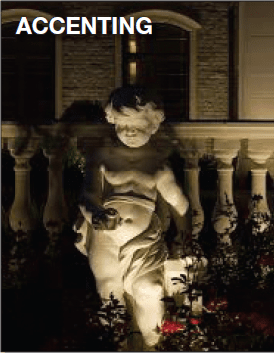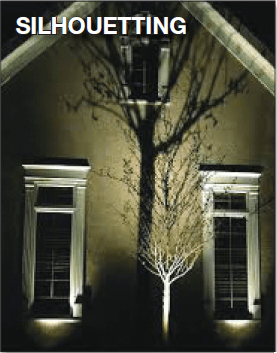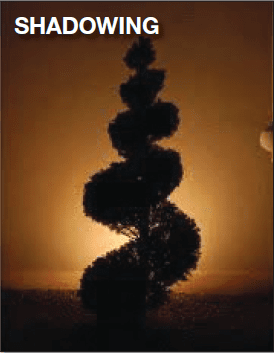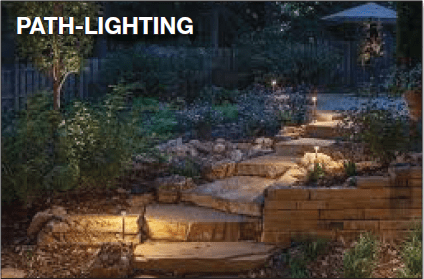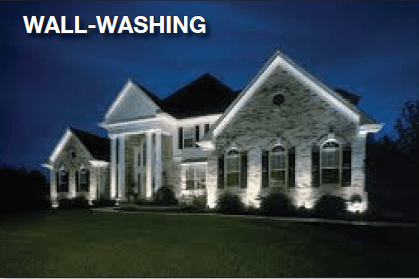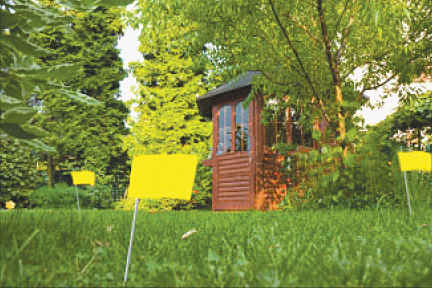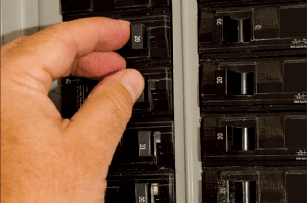Landscape Lighting in Westchester & Fairfield Counties
Enhance Your Environment with Irrigation, Lighting, and Water Features installed by Eco-Systems
Landscape Lighting Basics
The
three main components of every landscape lighting system
are the transformer,
fixture, and lamp/light bulb. The transformer is the brain of the system, it converts line voltage from 120 volts to 12 volts. Safe power of 12 volts are then sent to a
line of fixtures and multiple wires that are used to zone fixtures throughout the
property. These fixtures direct and control the light applied to the home's
architectural features and garden accents. The zones are generally laid out and
installed according to wattage of the lamps and location.
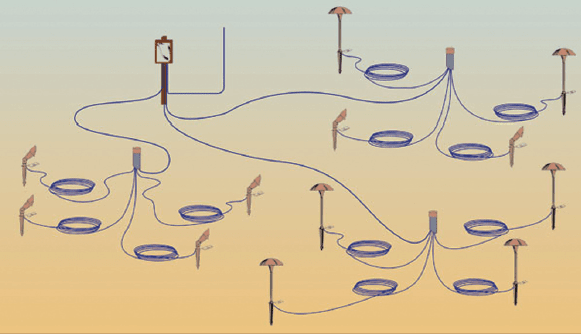
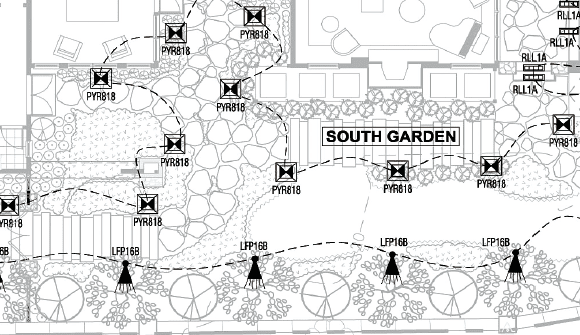
To see the latest upgrades and options available for your landscape lighting system including system-control smart phone apps, click here!
What is LED Lighting?
LED lighting refers to lighting that utilizes solid-state LED (light emitting diodes) technology instead of standard incandescent bulbs in the way they produce light. LEDs use semiconductors that convert electricity to light. Incandescent light, on the other hand, is created using a combination of filaments, gases and glass to create thermal energy that is released as light. Developments in LEDs have increased to the point where they are being used for a variety of applications in both the private and public sectors. Lighting sources ranging from traffic lights, street lights, exit signs and other outdoor illumination are being retrofitted with LEDs. Why should you use LEDs for landscape lighting?

